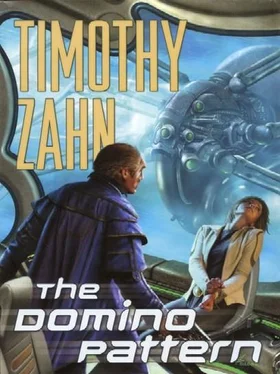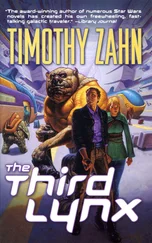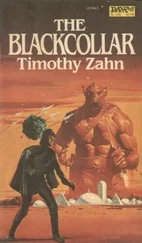Timothy Zahn
The Domino Pattern
The fourth book in the Quadrail series
For the Fedukowskis:
Readers, teachers, analysts, Scrabblers
Space, as some twentieth-century philosopher succinctly put it, is big. Really big. So big that even a single medium-sized galaxy, such as our own Milky Way, has plenty of room to he pretty damn huge all by itself.
So huge that even at a Quadrail train’s incredible speed of a light-year per minute, if you followed the curve of the spiral arms it would take well over three months to get from one end of the galaxy’s populated regions to the other.
Three months is a long time for business moguls of the Twelve Empires, who can make or lose millions in a single day. It’s even longer for the galaxy’s politicians, who can gain or lose a lot more than that, including both their careers and their skins.
Thus it was that, a few hundred years ago, when the Spiders and their secretive Chahwyn masters began building their multiple light-years of Tube across the voids of interstellar space, they looked for a way to shorten the cross-galaxy trip.
And they found one.
In theory, the super-express lines weren’t any different from the rest of the Spiders’ vast interstellar travel network. Inside each Tube were several sets of the Spiders’ signature four-rail tracks on which all Quadrail trains ran. Down the geometric center of the Tube ran the Coreline. a brightly coruscating inner cylinder that was the actual driving force behind the light-year-per-minute speeds the trains could make, though that fact was a closely guarded secret.
In practice, though, there was something especially impressive, and especially disturbing, about the super-express system. A typical Quadrail train made frequent stops as it journeyed among the stars, rolling into station after station to drop one set of passengers and pick up the next. Even the express trains, which blew straight through the smaller stations without stopping, still gave their passengers those brief views of new scenery, new places, and new people.
That wasn’t the case with the super-express lines. There were no stations at all between the Jurian Homshil system and the Shorshian system of Venidra Carvo, some sixty-two thousand light-years away on the other side of the galaxy. That meant nothing to break the visual monotony of gray, Coreline-lit Tube wall for six long weeks, nothing to show that you and your fellow passengers weren’t in fact the only people left in the universe.
And if trouble of any sort broke out, there would literally be no place for anyone to run.
All this flicked with unpleasant clarity through my mind as the Quadrail super-express train left the maintenance area at the far end of Homshil Station and rolled toward our platform. It was a long train, at fifty cars nearly twice the length of a normal Quadrail. From the data chip I’d read I knew that roughly a quarter of those cars were devoted to baggage and cargo, supplementing the usual cargo trains that traveled this route. There were also extra food-storage cars, entertainment and exercise cars for all three travel classes, and other cars devoted entirely to shower and laundry facilities.
In many ways, in fact, the whole thing was less like a normal Quadrail train than it was a long, segmented ocean cruise liner.
A cruise liner in which we were about to be stuck for six long weeks.
“It’ll be all right,” Bayta said quietly.
I looked at the young woman beside me. Her dark brown hair glinted in the Coreline’s coruscating light show, and her equally dark eyes were steady on my face. Bayta had been my constant companion, fellow soldier, and friend for the many months since I’d been coopted into this quiet little war of ours. “Of course it will,” I agreed, keeping my voice light. “Why, do I look worried or something?”
One of her eyebrows twitched. “Six weeks locked inside a Quadrail?” she countered pointedly.
I looked back at the incoming train, suppressing a grimace. I knew I didn’t look worried—I had better control of my face than that. But Bayta had been with me long enough to be able to read beneath the surface.
“We don’t have to do this,” she went on quietly. “There are regular express trains that travel mostly through the inhabited regions. We could just stick to those.”
“And double the transit time?” I shook my head. “No. Six weeks is bad enough as it is.”
She didn’t reply. But then, she didn’t have to. I’d been with her long enough to know how to read her , too, and I knew we were thinking the same unpleasant thoughts.
Because our enemy in this war, the group mind that called himself the Modhri, also liked to ride the Quadrail. He also typically targeted the galaxy’s rich and powerful, which meant there was likely to be a Modhran mind segment in the first-class section of the train we were about to board.
And the Modhri very much wanted both Bayta and me dead.
I couldn’t really blame him. The Modhri was, bottom line, nothing more or less than a sentient weapon, designed a millennium and a half ago to be the ultimate infiltrator/spy/saboteur/ fifth-columnist by a slaver race called the Shonkla-raa, who had been in absolute control of the galaxy and its sentient inhabitants for nearly a thousand years.
Though at the time of the Modhri’s creation, they hadn’t been much in control of anything. In fact, they had been fighting for their survival against a carefully crafted rebellion being carried out by an alliance of their slaves.
Unfortunately for the Shonkla-raa, the revolt had ended in their destruction before the Modhri could be deployed. Unfortunately for the rest of us, the Modhri hadn’t simply died off. He’d lived on, waiting patiently until the Halkas had stumbled on his homeworld a couple of hundred years ago and found the exotic coral in which lurked the polyps that comprised his physical structure.
Decorative coral being what it is, and economics being what it is, the Halkas had ended up selling, trading, and otherwise distributing the damn stuff across the whole galaxy. Unfortunately, one touch of unprotected skin against that coral was enough to pick up a few polyp hooks, which eventually grew into full polyps and then a polyp colony, settling in at the base of the victim’s brain. Once there, the new Modhran mind segment could watch and listen through his new walker’s senses, whispering suggestions to guide the person’s actions in order to benefit whatever the Modhri’s goals were at a given moment. Should the mood strike him, the Modhri could also take complete control of his unwitting host’s body, blacking out the host’s own consciousness and leaving him only a puzzling memory gap when it was all over.
The Modhri’s ultimate goal was to fill the galaxy with himself, which meant filling the galaxy with walkers. And up to now, he’d been doing pretty well for himself.
Or he had until the Spiders had tumbled to his existence. There’d been some false starts and some false assumptions, on both sides, as to exactly what was going on. But that had all been sorted out, and as of right now we all pretty much knew where we stood.
On paper, at least, where we stood was pretty depressing. On one side were the Modhran coral outposts, thousands of them, and his coopted walker allies, thousands if not millions of them. On the other side were the Spiders and the Chahwyn, species which were both constitutionally incapable of actual fighting, plus a handful of individuals who didn’t have any such psychological shortcomings.
Two of that handful were Bayta and me.
The odds were frankly ridiculous. But despite that, Bayta and I and our allies had done remarkably well. Our latest trick, pulling a young Human girl named Rebekah and her wildcard cargo out from under the Modhri’s collective nose on the Human colony world of New Tigris, had been one of our greatest successes, and had no doubt irritated the Modhri no end.
Читать дальше




